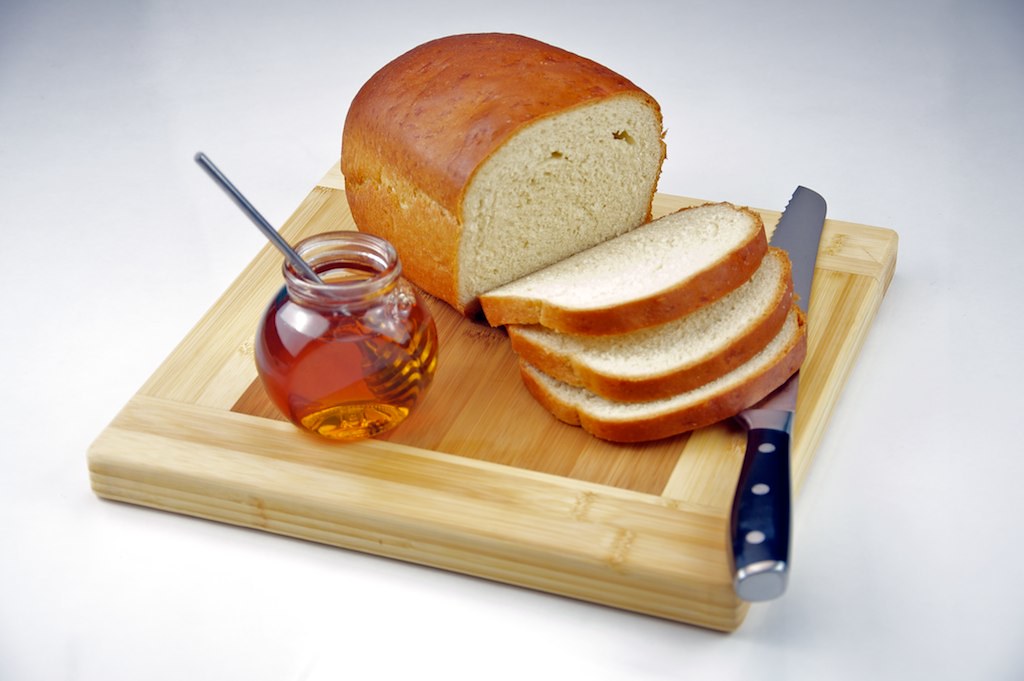Ah, the eternal debate: French bread versus white bread. It’s the ultimate battle of carbs, gluten, and yeast. But which one is truly superior?
Let’s take a closer look at each bread’s nutritional differences, taste test, cultural significance, texture, nutrients, health benefits, baking differences, price comparison, versatility and pairings, and availability.
Nutritional Differences
Let’s start with the nitty-gritty of nutrition. French bread is typically made with unbleached flour and has a denser texture, while white bread is made with bleached flour and has a softer texture. But that’s not where the differences stop.
French bread often contains whole grains, seeds, and nuts, while white bread is usually stripped of these healthy components. French bread is lower in calories and carbohydrates, making it a better option for those watching their weight or blood sugar levels.
On the other hand, white bread typically has more added sugar and salt, making it a less healthy option overall. So, if you’re looking for a healthier option, French bread may be the way to go.
Taste Test
Now, let’s get to the fun part: taste! French bread has a more complex, nutty flavor, thanks to its natural ingredients and longer fermentation time. White bread, on the other hand, is often sweeter and bland, lacking the unique flavors of the French variety.
French bread also has a crispier crust and chewier texture, while white bread is often softer and more pillowy. Ultimately, your taste preferences may influence which type of bread you choose to enjoy.
But let’s be real here, French bread wins this one hands down. Who doesn’t love a good, crusty baguette?
Cultural Significance
Moving on to something a bit more cultural: the meaning behind each bread. French bread is deeply ingrained in the culture and history of France, and is even protected under French law. It’s seen as a symbol of French identity and is celebrated in France’s food culture.
White bread, on the other hand, is widely consumed in America and other Western countries, but doesn’t hold the same symbolic value as French bread. Choosing between the two types of bread can be a way to connect with different cultures and culinary traditions.
But let’s be real, we all secretly want to pretend we’re in Paris when we’re munching on a baguette.
Texture Matters
Let’s talk about the importance of texture in bread. As mentioned earlier, the texture of French and white bread can differ significantly. French bread’s denser texture and artisanal crust hints at the skill and craftsmanship that goes into making it.
White bread’s fluffier texture and softness make it a popular choice for sandwiches, while French bread is often paired with cheese, meats, or olive oil. So, if you’re a texture-oriented person, take this into consideration when choosing your bread.
Nutrients to Consider
Back to the nutrition side of things: let’s discuss the specific nutrients each bread offers. French bread’s whole grains provide important nutrients like fiber, vitamins, and minerals. Meanwhile, white bread’s bleached flour may take away some of these nutrients.
The fiber in French bread can also help regulate blood sugar and digestion. For those looking to boost their nutrient intake, French bread is the way to go.
Health Benefits
Speaking of health benefits, let’s take a closer look at how each bread can impact your well-being. French bread’s lower carbohydrate and calorie content may be beneficial for those looking to lose weight.
White bread’s added sugar and salt may be harmful in excess, leading to issues like high blood pressure and a higher risk of heart disease. By choosing French bread over white bread, you may be giving your body a more nutritious, healthful option.
Baking Differences
Now, let’s move on to the baking differences between each bread. French bread requires a longer fermentation time and higher skill level to make properly.
White bread can be whipped up quickly and easily, often using a bread machine or pre-made dough. Those interested in traditional baking techniques and artisanal bread-making may prefer French bread.
For those looking for convenience, white bread may be the better choice. But let’s be honest, who doesn’t love the smell of freshly baked bread?
Price Comparison
Okay, let’s talk about everyone’s favorite topic: money. French bread may be more expensive than white bread due to its higher-quality ingredients and lengthier baking process.
White bread is often mass-produced and less expensive to make. Budget-conscious shoppers may prefer white bread for its affordability.
But, if you’re willing to splurge a little, that fresh, crusty baguette is worth every penny.
Versatility & Pairings
Now, let’s discuss versatility and pairings. French bread is often served with cheese, charcuterie, and other savory items.
White bread pairs well with sweet spreads like peanut butter and jelly. Both breads can be used for sandwiches, depending on personal preferences.
Considering what foods you most often pair with bread may influence your choice between French and white varieties. But let’s face it, French bread just feels a bit more fancy and sophisticated.
Availability
Last but not least, let’s talk about availability. French bread may be harder to find in some areas of the world, while white bread is often readily available in grocery stores.
Specialty bakeries and markets may carry French bread, but the availability may be inconsistent. Keeping availability in mind may impact which type of bread you choose to purchase and enjoy.
But let’s be real, any excuse to travel to Paris is a good one.
In conclusion, the age-old question of French bread versus white bread may never be fully answered. Both offer their own unique benefits and drawbacks, and it ultimately comes down to personal preference.
But let’s be honest, who doesn’t love a good, crusty baguette? Bon appétit!

